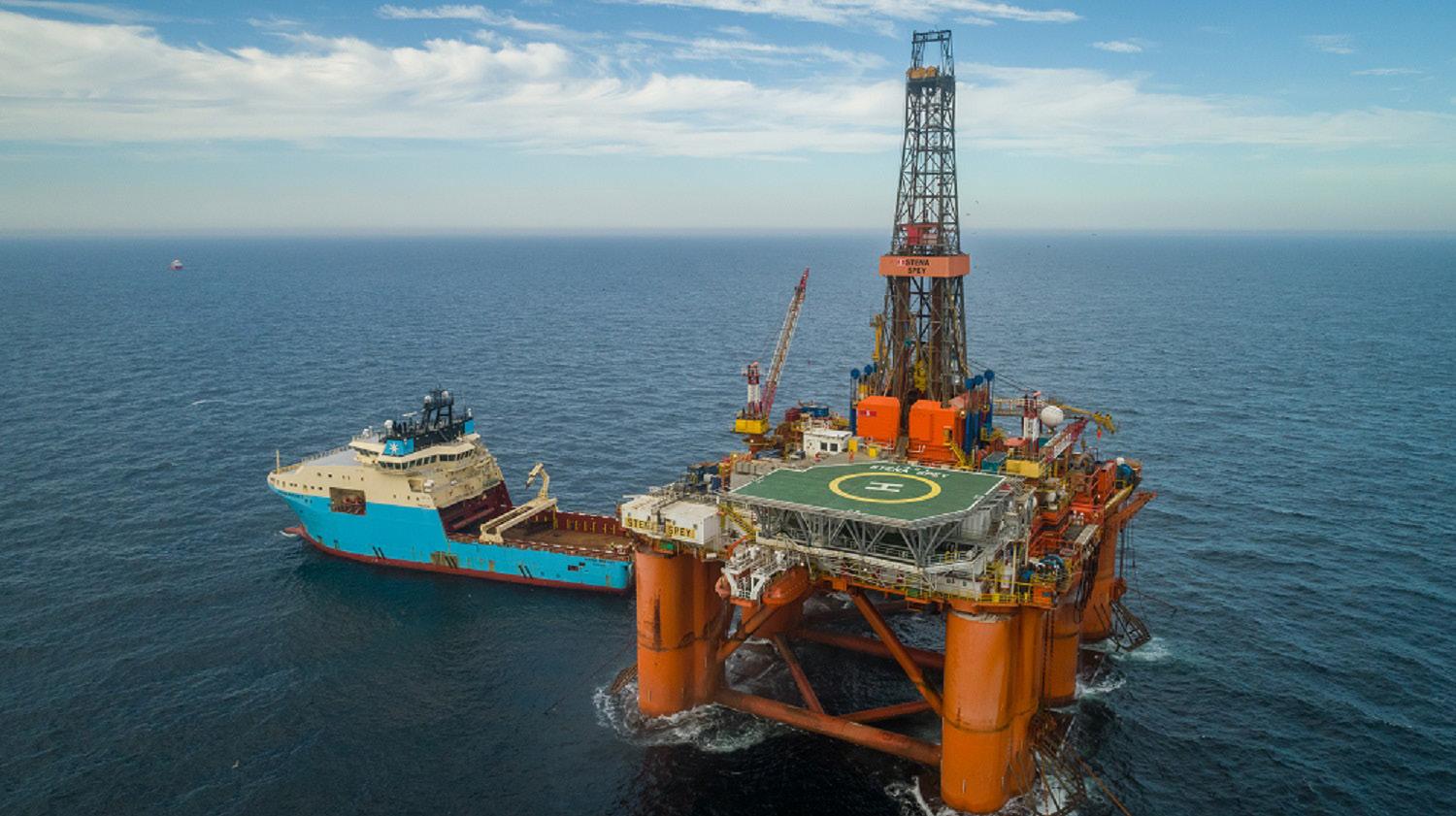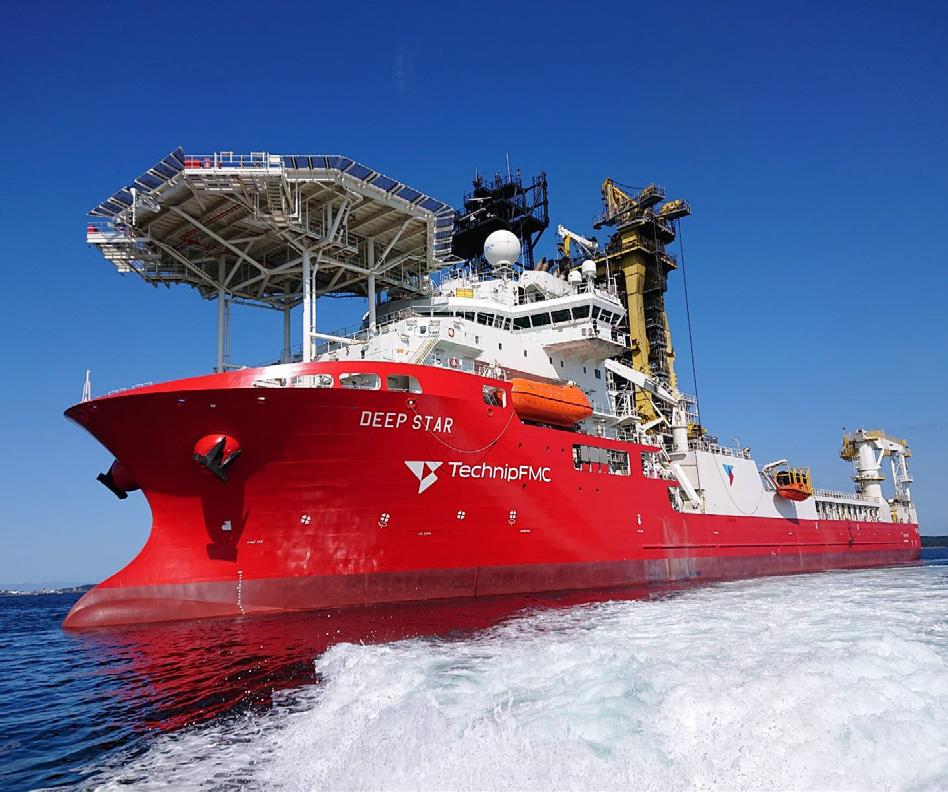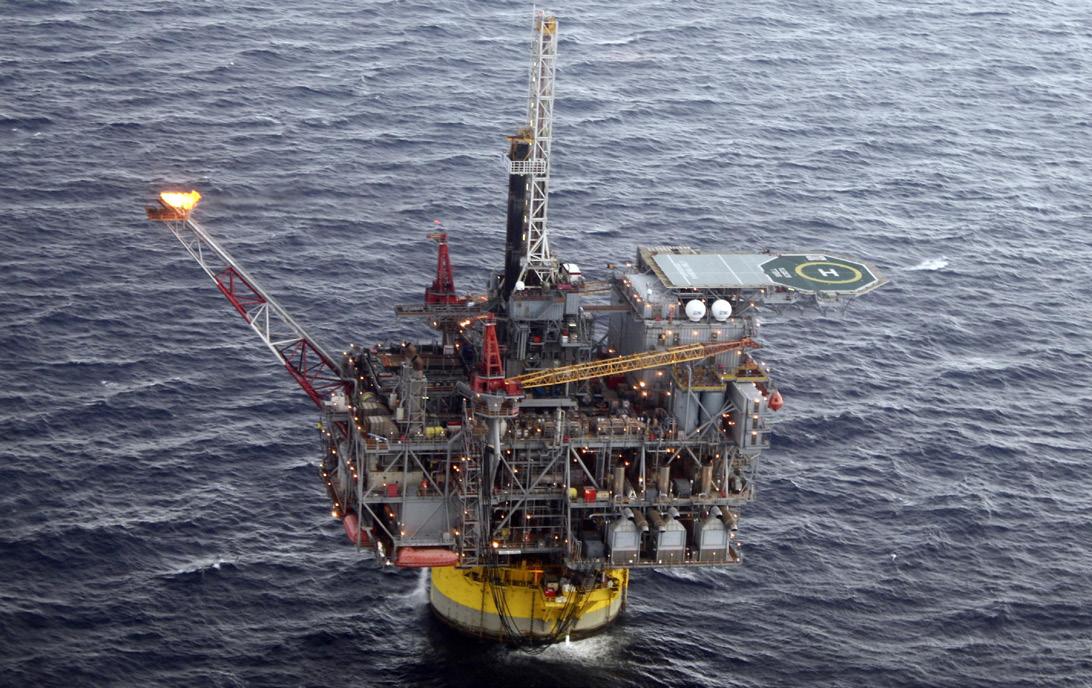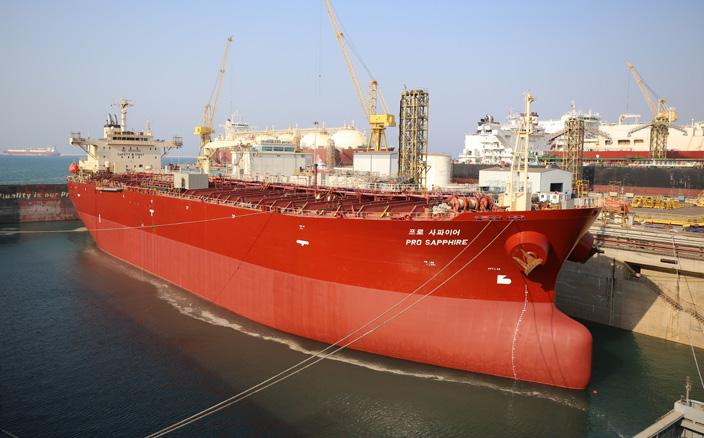Offshore - Rigs By Paul Bartlett
Rig rates rise as energy security concerns mount The global energy system is in a bind. The pandemic, far from over in many countries, disrupted energy supply chains - Russia’s invasion of Ukraine has slashed imports of oil and gas to countries in Europe, forcing them to find alternative supplies; and these challenges come at a time when the world is facing a GHG crisis that threatens the planet’s future. But this is a case of opportunity arising from adversity for offshore rig operators working in various key sectors. Day rates are already significantly higher than six months ago, more rigs are being reactivated, and stranded rigs are being sold; all signs of an improving market. However, experts say that utilisation rates have not yet returned to the buoyant period prior to the oil price crash. But they are still moving in the right direction in most offshore rig sectors. According to Rystad Energy, an Oslo-based energy consultancy, day rates for oil and gas rigs of all types and sizes are climbing – from jackups through to ultra-deep-water units in the Golden Triangle, which stretches between the US Gulf, Brazil and West Africa. But improvements are evident in other regions too. Analysts report that utilisation rates in South East Asia are improving, partly because jack-up drilling rigs are being pulled towards the Middle East following a large Saudi Aramco tender. Meanwhile, Keppel Offshore & Marine is reported to have signed charter deals recently relating to four jack-up rigs with Middle East counterparties. It is believed, though not confirmed, that the charter deals could relate to four jack-ups ordered in 2013 and 2014 on which Keppel Corporation subsidiary, Keppel FELS, terminated construction contracts in April. The offshore sector received another boost at the end of June, as it became clear that the US Administration is planning to allow new offshore drilling in the Gulf of Mexico. The proposals are not finalised yet, however, as a 90-day consultation period has begun. But the direction of travel is clear. As in other parts of the world, the global energy crisis has forced President Biden to re-think his campaign pledge to stop new oil and gas developments on federal waters and land. The Trump Administration’s aims to open up areas of the Atlantic and Pacific coasts to offshore drilling, faced widespread opposition from coastal states, and these areas will remain off-limits in President Biden’s draft proposals so far. However, new leases will be offered in areas that already generate most of America’s offshore oil production, policy watchers said. No surprise that climate experts oppose the move – they argue that new exploration will not do anything to ease rocketing energy prices in the short term; and, what’s more, it will commit the country to more decades of hydrocarbon dependence. However, Ben Cahill, a senior fellow at the Centre for Strategic and International Studies, took a more pragmatic line. He conceded that new leases would not help to reduce energy prices in the short run but said that the Biden Administration could use the move as part of a broader effort to push his climate agenda. And he warned that the pandemic and Europe’s response to Russia’s aggression have created a supply crunch that could last for years. There has never been a silver bullet because renewables are never
Page 70 – www.shipandoffshorerepair.com
The global energy crisis has forced President Biden to re-think his campaign pledge to stop new oil and gas developments on federal waters
going to contribute sufficient energy to power the world’s major energy consumers – cement, steel, agriculture and, of course, transport. But as energy security has become a prime concern, the backdrop has changed dramatically. Coal is back on the agenda and even mothballed nuclear power plants are being assessed for possible recommissioning. All energy options are now on the table, and the offshore drilling sector is likely to be one of the principal beneficiaries.
Lamprell founders UAE-based oil field fabrication and engineering service company, Lamprell PLC, had its shares suspended at 9.00 pence on the first day of July after its stock lost 83% of value over the last year. The dramatic fall accelerated as the company warned that it was facing ‘urgent and severe liquidity constraints’. The Dubai-based rig builder and service company constructs jack-ups and wind turbine foundations for the energy industry but had not been able to agree new funding arrangements since the beginning of the year. In a statement, the company warned that it was at risk of not being able to meet imminent funding obligations.
Some Lamprell yards have been closed














